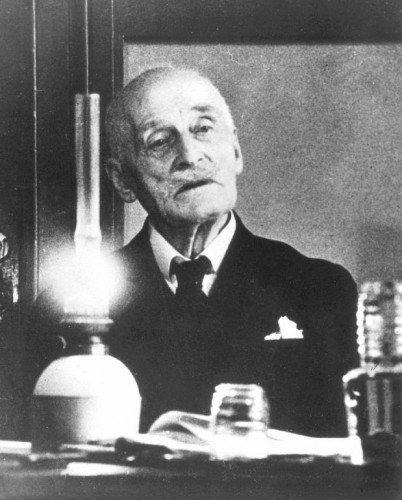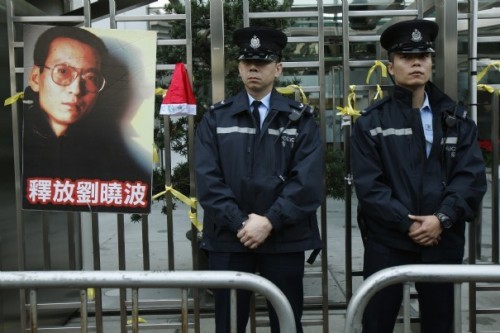
The Geopolitical Agenda behind the 2010 Nobel Peace Prize
By F. William Engdahl
Ex: http://www.engdahl.oilgeopolitics.net/
With almost flawless political timing, the Nobel Peace Prize Committee of the Norwegian Parliament announced the giving of the 2010 Nobel Peace Prize to Chinese critic, political activist Liu Xiaobo. The announcement came just as US Treasury Secretary Timothy Geither was upping the pressure on the government of China to agree to a substantial revaluation of the Yuan, a move that would do little for the embattled dollar but cause great harm to China’s economy. The Nobel Prize theater is part of an escalating long-term pressure strategy of Washington against China.
The award of the Nobel Peace Prize to Liu Xiaobo was clearly no coincidence of events. Rather it must be understood in my view as a calculated part of a long-term strategy, not from a few members of the Norwegian Parliament, but from the leading elite circles of the world’s hegemonic power, the United States, to break China’s stride to become a sovereign and leading world economic factor. From their point of view, China must be “cut down to size.”
The Nobel Peace Prize's world media theater is a calculated part of this strategy―trying to make China “lose face” in the eyes of the rest of the world. That is all part of an orchestrated deeper game, using “human rights,” and a web of NGOs and organizations that Washington controls directly or indirectly, as a weapon of Washington geopolitics.
It is not likely to succeed any more than Washington’s calculated incitement of Tibetan riots around circles tied to the Dalai Lama in March 2008, or its covert encouragement of unrest in China’s Xinjiang Province in July 2009, or its attempt to activate a destabilization in China’s neighbor country, Mýanmar in 2007, the so-called Saffron Revolution. The circles running these pin-prick operations are aware of that. What they are doing is carefully preparing the international climate to turn the Peoples Republic of China from a partner and "friend" into the new “enemy image.” It's a very high risk strategy on Washington’s part. It is also rooted in a certain desperation over the USA's geopolitical situation.
Liu Xiaobo’s funny foreign friends
There is an old English expression that bears much truth, that a man is known by the company he keeps. I am not qualified to speak to the person of Liu Xiaobo. I have never met the man nor have I read his works. What I find significant however, is the company he keeps, especially Liu’s funny foreign friends.
Liu Xiaobo was President of the Independent Chinese PEN Center until 2007 and currently holds a seat on its board according to his official biography at the PEN International website.1 PEN is not just any random collection of writers. It is an integral part of the Anglo-American web of human rights and democracy advocacy NGOs and private organizations used to achieve defined geopolitical goals of its sponsors.
PEN calls itself the “world’s oldest human rights organization,” and was established in the 1920’s in London by two of the leading geopolitical strategists of the British Empire at the time, G.B. Shaw and H.G. Wells. It is supported by a network of private US and European foundations and corporations including Bloomberg, as well as the Norwegian Ministry of Foreign Affairs and “other donors who wish to remain anonymous.” It aims to create something it calls a “world culture.” That smells suspiciously like the Anglo-American theme of “Global Governance” or David Rockefeller’s “New World Order.” PEN is part of a larger web called the International Freedom of Expression Exchange or IFEX, an international network, based in Canada, of some ninety NGOs with the noble-sounding aim of defending “the right to freedom of expression,” whatever that might mean. IFEX members include the Washington-based Freedom House, itself financed by the US State Department, and the National Endowment for Democracy (NED).
Freedom House, created in 1941 to promote American entry into World War II, was used during the Cold War as a vehicle for CIA-directed anti-communist propaganda. Its recent activities have been a central role as NGO in Washington-directed destabilizations in Tibet, Myanmar, Ukraine, Georgia, Serbia, Kyrgyzstan and other countries apparently not pursuing policies satisfactory to certain powerful people in the USA. Its past president was former CIA Director James Woolsey. Freedom House chairman, Bette Bao Lord, was also a leading figure in the International Committee for Tibet at the time of the 2008 Tibet riots. Freedom House has worked closely with George Soros’ Open Society Institutes and the Norwegian Ministry of Foreign Affairs in promoting such projects as the Washington-financed 2005 Tulip Revolution in Kyrgyzstan that brought the Washington-friendly dictator and drug boss, Kurmanbek Bakiyev to power.2
So much for the PEN relations of Liu Xiaobo. Now we should look at why the Nobel award was made to him.
The little-known story of Tiananmen 1989
In their announcement of the Nobel award the committee cited Liu’s role in the 1989 Tiananmen protests as a major factor, as well as his co-authorship of something called Charter 08 in 2008, which Time magazine called “a manifesto calling for democratic political reform in oppressive communist China.”3
Liu Xiaobo reportedly flew back from teaching at America’s elite Ivy League Columbia University in spring of 1989 to play a leading role in student protests at Beijing’s Tiananmen Square. The events of Tiananmen Square in June 1989 are shrouded in the images of CNN for much of the world. What few know is that Tiananmen Square in June 1989 was an early attempt of the US intelligence to interfere in the internal affairs of the Peoples' Republic of China and to implement what later came to be called Color Revolutions. Similar Color Revolutions were later run by Washington in Serbia against Milosevic, in Ukraine with the so-called Orange Revolution, Georgia’s Rose Revolution and other geopolitical destabilizations aimed at creating Washington-friendly regime changes.
As I describe in my book, Full Spectrum Dominance: Totalitarian Democracy in the New World Order, the man who urged then-President George Herbert Walker Bush to impose strong sanctions against the Beijing government for the events of Tiananmen was US Ambassador James R. Lilley, long-time Bush friend and CIA official. There is good reason to believe that Lilley was the case officer running the destabilization operation. Gene Sharp of the Albert Einstein Institution in Boston, the author of the textbook for “non-violence as a form of warfare” as he terms it, was also in Beijing days before the Tiananmen protests escalated. Sharp’s organization and text, especially his book, Civilian-Based Defense: A Post Military Weapons System, reportedly played a significant role in the Color Revolutions in Serbia, Ukraine and Georgia as well. Perhaps just a coincidence that Sharp was in Beijing in June 1989…perhaps not.4
And at the time of the destabilizing events of Tiananmen in 1989, a foundation headed by George Soros, Fund for the Reform and Opening of China, was also reportedly forced to close down after Chinese officials accused it of working with the CIA to destabilize China during the June 1989 Tiananmen time.5
It is useful to recall that US intelligence in just this time was active in bringing the collapse of the Soviet Union as well. So the fact that Liu Xiaobo decides to drop a promising academic career in New York’s elite Columbia University to jump into the middle of events at Tiananmen in spring 1989 suggests at the very least he might have been encouraged to do so by some of his funny foreign friends in the US.
In terms of Liu’s role in drafting the Charter 08, his timing here is also remarkable and curious. At a time when China is modernizing its economy and allowing what appear to this writer as in many cases more individual freedom than one finds in certain Western so-called democracies, Liu escalates political pressures on the Beijing government. And he does it in 2008, clearly knowing well that Chinese officials are extremely sensitive to possible efforts by Tibet and other groups such as Uighurs to embarrass Beijing during the Olympics. The US State Department admitted that the 2008 Tibet Dalai Lama-supported protests and riots were the most serious internal unrest in the history of the Peoples’ Republic. It was hardly a time to demand more opening of dissent if one were really serious about such themes. It suggests that the activities of Liu Xiaobo might have another deeper agenda which perhaps his funny foreign friends provide.
The Nobel Prize Nomination
In this context, the list of names who formally nominated Liu Xiaobo to get the Nobel Peace Prize in 2010 is worth noting. The nomination was proposed by none other than the Dalai Lama, a long-time recipient of US Government financial largesse, from both the CIA and the US Congress v ia the National Endowment for Democracy. The fact that the Dalai Lama nominated Liu says much of the geopolitical nature of this year’s Nobel Peace Prize.
If we then look at a list of the other persons who nominated Liu Xiaobo, it reads like an international membership list of David Rockefeller’s very secretive Trilateral Commission, an ultra-elite membership-by-invitation-only group of three hundred of the most powerful persons in North America, Europe and Japan (China has not been invited to this select club).
Along with Dalai Lama, Karel Prince of Schwarzenberg and Czech Foreign Minister, former WTO head Mike Moore, Russian free market opposition politician Grigory A. Yavlinsky, all nominated Liu.
Prince Karel, Moore and Yavlinsky are all members of the elite Trilateral Commission suggesting that might be where plans were made to make Liu Xiaobo the Nobel winner.
Pro-NATO former Czech President Vaclav Havel, who is chairman of the International Council of the George Soros-financed Human Rights Watch, also joined in nominating Liu for the prize. Havel, who is close friends with Prince Karel, notes that Liu’s Charter 08 was modeled on Havel’s Czech Charter 77 which was used, with covert US backing, to destabilize the Soviet Union in the 1980's.6 It all suggests a close-knit club as Havel, and the club dues are paid by Washington in this case.
About the Nobel Committee of the Norwegian Parliament little is made public. Their website stresses their complete independence which is less than credible if one looks to the list of names they have awarded the prize to. It includes the Dalai Lama, Burmese jailed opposition leader Aung San Suu Kyi, Barack Obama who got the award after only two weeks in office and despite the fact his military buildup of the war in Afghanistan was explicit before his nomination, Henry Kissinger who as Secretary of State backed repressive death squad regimes of Latin American dictators during the 1970's. And of course, just when Wall Street banks and Anglo-American establishment decides to promote the fraud of global warming, the Nobel Peace Prize is awarded to the discredited UN IPCC and to global warming promoter Al Gore. To put the facts in the open, evidence is clear that the Nobel Peace Prize is part of the geopolitical instruments of the NATO circles used to put pressure on governments it does not completely approve of. Norway is a founding member of NATO and has extremely close ties to leading US circles.
The Deeper Geopolitical Significance
The question as to why US powerful circles chose this moment to escalate pressure on the Peoples' Republic of China by awarding the Peace Prize to Liu Xaiobo is evident from the recent emergence of China as a strong and dynamically-growing world economy at the same time that the United States sinks into the worst economic depression in more than two hundred years of its existence.
Official US strategic policy remains that elaborated in the September 2002 National Security Strategy of the United States, sometimes termed the Bush Doctrine which states that "America's political and military mission in the post-cold-war era will be to ensure that no rival superpower is allowed to emerge in Western Europe, Asia or the territories of the former Soviet Union." That formulation has been explicit Pentagon doctrine since 1992.7
The reason China is being targeted? Simply because China today exists, and exists as a dynamically emerging world factor in economics and politics, creating foreign alliances to support that growth in places like Sudan or Iran where Washington has less control. At his point China's existence as a dynamic stable nation is a growing strategic threat to the United States, not because China threatens war as Washington is doing all round the world. The threat is that the United States and those who dominate its policy lose that global hegemonic position as China, Russia, the Shanghai Cooperation Organization countries of Central Asia as well as countless other countries move toward a far more diverse multi-polar world. According to the Bush Doctrine and US strategic geopolitics, that further dynamic must be prevented at all costs now while it is still possible. The recent escalation of sanctions against Iran by the UN Security Council under strong US pressure had less to do with Iran and its nuclear ambitions than with the fact that Iran is a strategic economic partner of China.
The award of the Nobel Peace Prize to Liu Xiaobo, far from a gesture in promotion of peace ought better to be seen for what it is: a US-guided, NGO-fostered part of a declaration of irregular warfare against the sovereign existence of China. British Balance of Power geopolitics since two hundred or more years has had as axiom that the hegemonic empire must always seek out the weaker of two potential adversaries and ally with it to destroy the stronger. US policy with regard to India since 2001 and with regard to China since 2008 has been just that, pursuit of a military and strategic alliance with the vastly weaker but useful India against strategic Chinese interests in Asia especially Pakistan and Afghanistan.
The official presence of NATO in Afghanistan, far away from the North Atlantic area of NATO ought to signal that all this is not about promotion of democracy or freedom of expression, but about a declining hegemon desperately trying every weapon in its arsenal to reverse reality. Liu Xaiobo is but a convenient tool in their efforts, one of countless many, like the Dalai Lama or Rebiya Kadeer of the Washington-backed World Uyghur Congress. They seem to have less effect as American credibility declines along with its economic stability, a highly unstable mix.
1 PEN America Center Website, China: Liu Xiaobo, accessed here
2 Philip Shishkin, In Putin's Backyard, Democracy Stirs -- With US Help, The Wall Street Journal, February 25, 2005
3 The Nobel Peace Prize Committee, The Nobel Peace Prize 2010: Liu Xiaobo, accessed here. For the Time quote, see
4 F. William Engdahl, Full Spectrum Dominance: Totalitarian Democracy in the New World Order, Wiesbaden,
edition.engdahl, 2009, pp. 43, 117. As well, for more on the methods of Sharp and the RAND Corporation, Jonathan Mowat, The new Gladio in action?, Online Journal, March 19, 2005, accessed here
5 United Press International (UPI), China Fund employee reportedly interrogated, August 9, 1989.
6 Vaclav Havel et al, A Chinese Champion of Peace and Freedom, January 18, 2010, accessed here
7 Patrick E. Tyler, U.S. Strategy Plan Calls for Insuring No Rivals Develop: A One-Superpower World, The New York Times, March 8, 1992.
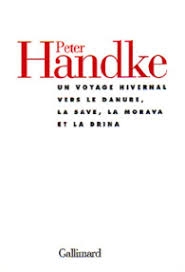 Et comment se faire une idée par soi-même ? En toutes choses, Handke n’a qu’une seule méthode : y aller voir, seul, sans accompagnement de caméras et micros et, si possible, à pied. S’immerger dans un réel perçu avec les sens, et témoigner, en payant de sa personne, du seul fait de sa présence. Contrairement aux penseurs en jets et hélicoptères, Peter Handke reste un marcheur invétéré. Il marche comme il pense, il pense comme il marche. Le scandale commença avec la publication, en 1996, en allemand, de Un voyage hivernal vers le Danube, la Save, la Morava et la Drina, sous-titré (Ô, horreur !) Justice pour la Serbie. Cet ouvrage fut abusivement qualifié de pamphlet alors que – comme le titre l’indique –, il s’agit d’un récit que l’auteur fait, par le menu, de sa découverte d’un pays diabolisé par le reste du monde, émaillé d’interrogations (sur un mode qui est tout sauf pamphlétaire !) sur la relation entre réel et information.
Et comment se faire une idée par soi-même ? En toutes choses, Handke n’a qu’une seule méthode : y aller voir, seul, sans accompagnement de caméras et micros et, si possible, à pied. S’immerger dans un réel perçu avec les sens, et témoigner, en payant de sa personne, du seul fait de sa présence. Contrairement aux penseurs en jets et hélicoptères, Peter Handke reste un marcheur invétéré. Il marche comme il pense, il pense comme il marche. Le scandale commença avec la publication, en 1996, en allemand, de Un voyage hivernal vers le Danube, la Save, la Morava et la Drina, sous-titré (Ô, horreur !) Justice pour la Serbie. Cet ouvrage fut abusivement qualifié de pamphlet alors que – comme le titre l’indique –, il s’agit d’un récit que l’auteur fait, par le menu, de sa découverte d’un pays diabolisé par le reste du monde, émaillé d’interrogations (sur un mode qui est tout sauf pamphlétaire !) sur la relation entre réel et information.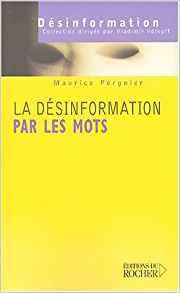 La désinformation par les mots : Les mots de la guerre, la guerre des mots, Ed. du Rocher, 2004, 18,20 euro.
La désinformation par les mots : Les mots de la guerre, la guerre des mots, Ed. du Rocher, 2004, 18,20 euro.


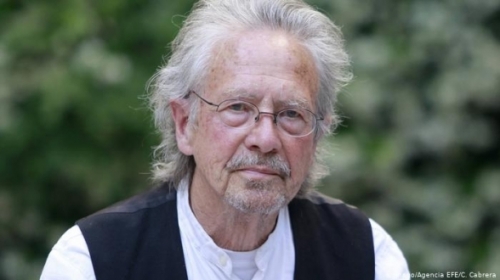

 del.icio.us
del.icio.us
 Digg
Digg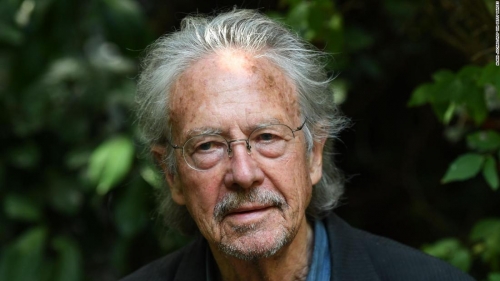
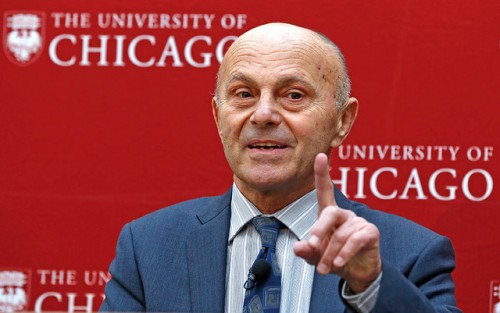

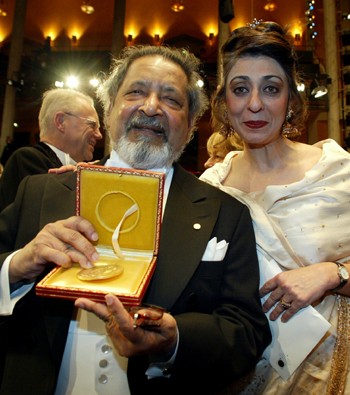 Aanvankelijk was de in Trinidad geboren Naipaul als eregast uitgenodigd voor
Aanvankelijk was de in Trinidad geboren Naipaul als eregast uitgenodigd voor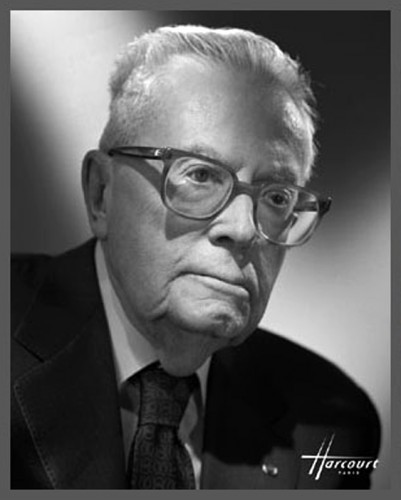
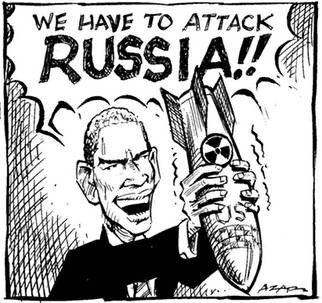 Obama accepte le prix Nobel de la paix et plaide pour la guerre permanente
Obama accepte le prix Nobel de la paix et plaide pour la guerre permanente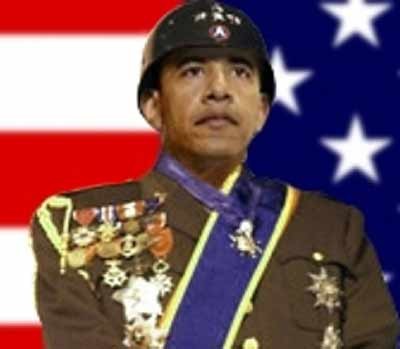
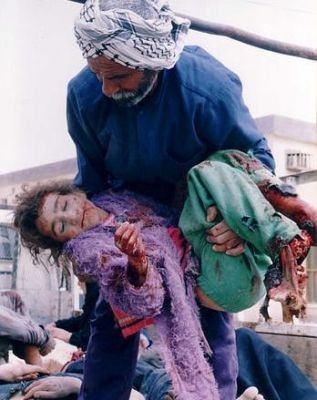


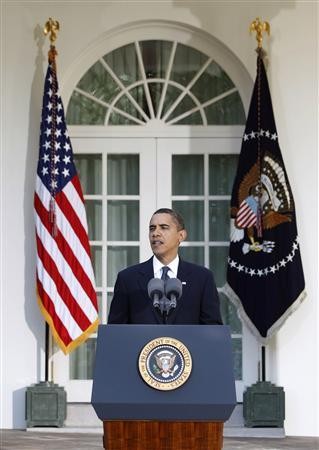 Warmonger Wins Peace Prize
Warmonger Wins Peace Prize


